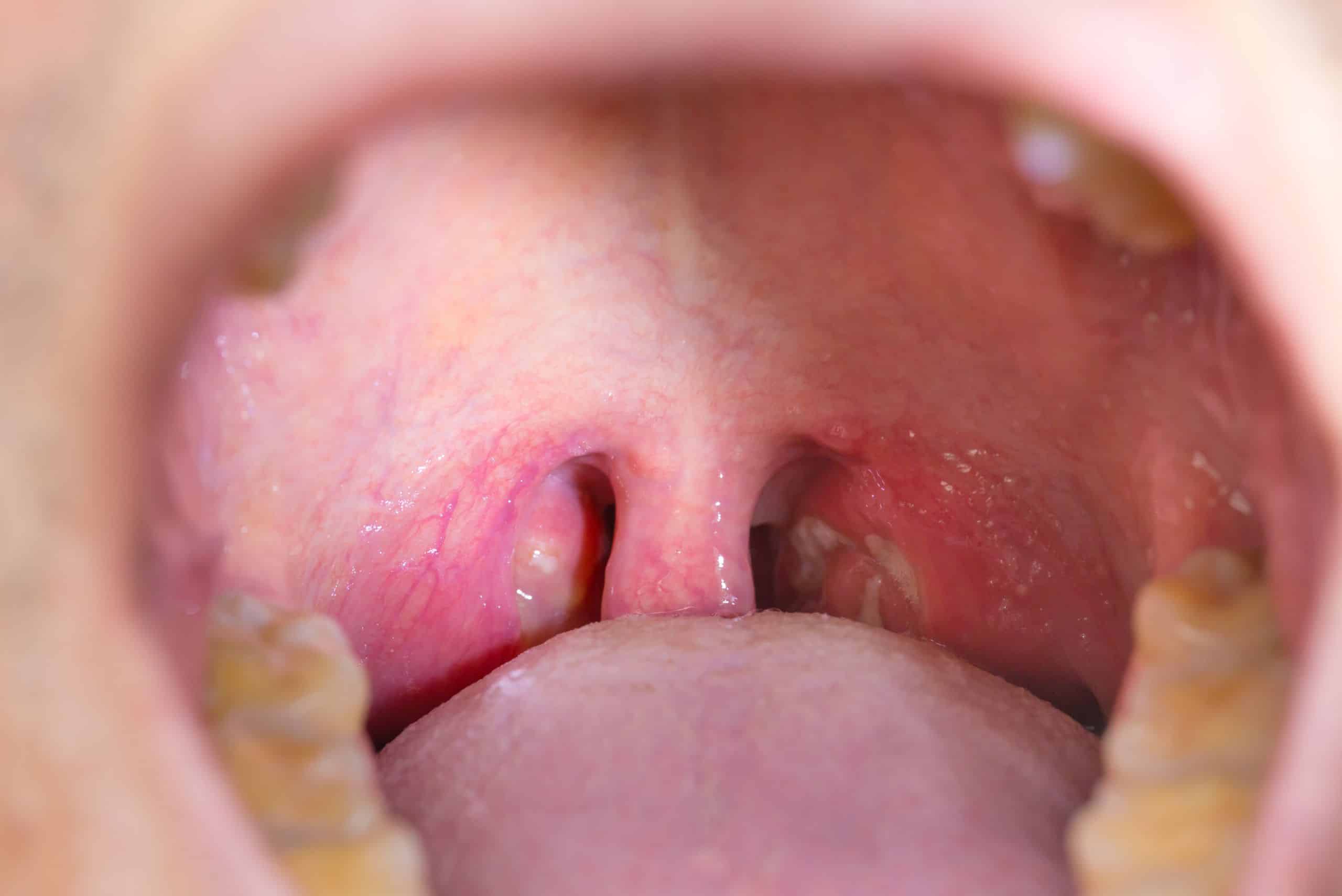Dentists are healthcare professionals who specialize in oral health. They are trained to diagnose and treat a variety of dental problems, including cavities, gum disease, and oral cancer. However, many people wonder if dentists can also remove tonsil stones.
Tonsil stones, also known as tonsilloliths, are small, hard deposits that form on the tonsils. They are usually composed of food particles, dead cells, and bacteria. While they are not usually harmful, they can cause bad breath, sore throat, and difficulty swallowing. Many people try to remove tonsil stones themselves, but this can be difficult and potentially harmful. As a result, they may wonder if a dentist can help.
So, can dentists remove tonsil stones? The short answer is yes, but it depends on the dentist. While dentists are not specifically trained to treat tonsil stones, they do have the necessary tools and expertise to remove them. In some cases, a dentist may use a special tool to gently scrape the tonsils and remove any stones. However, if the tonsil stones are particularly large or difficult to remove, the dentist may refer the patient to an ear, nose, and throat (ENT) specialist for further treatment.
Understanding Tonsil Stones

Tonsil stones, also known as tonsilloliths, are small, hard, calcified formations that develop in the crevices of the tonsils. They are made up of calcium, dead cells, and bacteria that accumulate and harden over time.
Tonsil stones can range in size from a small grain of rice to a large grape. They are usually white or yellowish in color and can cause bad breath, sore throat, and difficulty swallowing.
The formation of tonsil stones is often associated with the presence of deep crypts or pockets in the tonsils. These crypts can trap food particles, dead cells, and bacteria, which can then harden and form tonsil stones.
While tonsil stones are generally harmless, they can be quite uncomfortable and can cause embarrassment due to bad breath. In some cases, they may also cause inflammation and infection of the tonsils.
Overall, understanding the causes and symptoms of tonsil stones is important for proper diagnosis and treatment. If you are experiencing any discomfort or symptoms related to tonsil stones, it is recommended that you consult a healthcare professional for proper evaluation and treatment.
Causes of Tonsil Stones
Tonsil stones, also known as tonsilloliths, are small lumps of hard material that form in the tonsils. They are caused by a variety of factors, including:
- Food particles: Small bits of food can get stuck in the crevices of the tonsils and become a breeding ground for bacteria. This can lead to the formation of tonsil stones.
- Mucus: Mucus from post-nasal drip can also accumulate in the tonsils and contribute to the formation of tonsil stones.
- Poor dental hygiene: Not brushing and flossing regularly can lead to the buildup of bacteria in the mouth, which can contribute to the formation of tonsil stones.
- Smoking: Smoking can cause dryness in the mouth, which can lead to the buildup of bacteria and the formation of tonsil stones.
- Tonsil crypts: Some people have deep crevices, or crypts, in their tonsils, which can trap bacteria and food particles and lead to the formation of tonsil stones.
It’s important to note that while tonsil stones can be uncomfortable and cause bad breath, they are usually not harmful. In some cases, however, they can become large and cause difficulty swallowing or breathing, in which case medical attention may be necessary.
If you think you may have tonsil stones, it’s important to maintain good oral hygiene and visit a dentist or doctor for an evaluation.
Symptoms of Tonsil Stones

Tonsil stones, also known as tonsilloliths, are small lumps that form in the crevices and pockets of the tonsils. These stones are made up of bacteria, mucus, and food particles that get trapped in the tonsil crypts and harden over time.
The most common symptom of tonsil stones is bad breath. This is because the stones release a foul-smelling gas that can cause chronic halitosis. Other symptoms of tonsil stones include:
- Visible yellowish or white stone on the tonsils (on one or both sides)
- Sore throat
- Ear pain
- Cough
- Swollen tonsils
- Difficulty swallowing
- Tonsil swelling
In some cases, tonsil stones may not cause any symptoms at all and can go unnoticed. However, if you experience any of the above symptoms, it is important to see a healthcare professional for a proper diagnosis and treatment.
It is worth noting that some of these symptoms, such as bad breath and sore throat, can be caused by other conditions as well. Therefore, it is important to get a proper diagnosis to rule out any other underlying health issues.
Role of Dentists in Removing Tonsil Stones
Dentists play an important role in maintaining oral health, but can they remove tonsil stones? The answer is yes and no. While dentists are not specialized in removing tonsil stones, they can still help patients with this condition.
If a patient has tonsil stones, a dentist can examine their mouth and throat to determine the severity of the condition. They can also provide advice on how to prevent tonsil stones from forming in the future. For example, they may recommend good dental hygiene practices, such as brushing and flossing regularly.
In some cases, dentists may be able to remove tonsil stones manually in their office. However, this is not always the case, as dentists are not trained to perform this procedure. If a patient’s tonsil stones are particularly large or difficult to remove, they may need to see an ear, nose, and throat (ENT) specialist for treatment.
Overall, while dentists can play a role in removing tonsil stones, it is important to remember that they are not specialized in this area. Patients with tonsil stones should seek the advice of a medical professional who is trained in this area, such as an ENT specialist.
Non-Surgical Treatments
There are several non-surgical treatments available for removing tonsil stones. Here are some of the most common ones:
Gargling with Salt Water

Gargling with salt water can help alleviate the symptoms of tonsil stones. Salt water can help reduce inflammation and kill bacteria that contribute to the formation of tonsil stones. To gargle with salt water, mix a teaspoon of salt in a glass of warm water and gargle for 30 seconds before spitting it out.
Cotton Swab
Using a cotton swab to remove tonsil stones is a common practice. However, it is important to be very careful when doing so, as it can be easy to accidentally scratch or damage the tonsils. If you choose to use a cotton swab, be sure to sterilize it first and use a flashlight to help you see the tonsil stones.
Good Oral Hygiene
Practicing good oral hygiene is essential for preventing tonsil stones from forming in the first place. Brush your teeth twice a day, floss regularly, and use mouthwash to kill bacteria in your mouth. This will help prevent the buildup of bacteria and food particles that can lead to tonsil stones.
Oral Irrigator/Water Flosser
An oral irrigator, also known as a water flosser, can be an effective way to remove tonsil stones. These devices use a stream of water to dislodge tonsil stones from the tonsils. They are generally low-pressure sensitive irrigators and can be used at home.
Home Remedies
There are several home remedies that can help alleviate the symptoms of tonsil stones. These include drinking plenty of water, chewing on garlic, and using a tongue scraper to remove bacteria from the tongue. However, it is important to note that these remedies are not a substitute for professional medical treatment.
In conclusion, there are several non-surgical treatments available for removing tonsil stones. Practicing good oral hygiene, gargling with salt water, using a cotton swab, using an oral irrigator, and trying home remedies can all be effective ways to alleviate the symptoms of tonsil stones. However, if you are experiencing severe symptoms or have recurring tonsil stones, it is important to seek professional medical treatment.
Surgical Treatments

When tonsil stones are severe, surgical treatments may be necessary. An ENT (ear, nose, and throat) specialist or oral surgeon may perform the surgery, which can be done under local anesthesia.
The most common surgical treatment for tonsil stones is tonsillectomy, which involves removing the tonsils entirely. This procedure is usually reserved for those who experience frequent tonsil stones or have other tonsil-related issues, such as chronic tonsillitis.
Another surgical option is laser tonsil cryptolysis, which uses a laser to remove the tonsil crypts where tonsil stones tend to form. This procedure is less invasive than a tonsillectomy and can be done under local anesthesia. However, it may not be as effective as other surgical options.
Coblation cryptolysis is another option that uses radiofrequency energy to remove the tonsil crypts. This procedure is also less invasive than a tonsillectomy and can be done under local anesthesia. It has been shown to be effective in reducing the recurrence of tonsil stones.
It is important to note that surgical treatments for tonsil stones are typically reserved for severe cases and should only be considered after other treatment options have been exhausted. It is important to discuss all treatment options with a healthcare professional to determine the best course of action.
Prevention of Tonsil Stones
Tonsil stones can be prevented with good oral hygiene practices. Here are some tips to prevent tonsil stones:
-
Brush and floss regularly: Brushing and flossing your teeth regularly can help remove food particles and bacteria from your mouth that can contribute to tonsil stone formation.
-
Use a tongue brush: Using a tongue brush can help remove bacteria and debris from your tongue, which can also contribute to tonsil stone formation.
-
Gargle with salt water: Gargling with salt water can help reduce the amount of bacteria in your mouth that can cause tonsil stones.
-
Use a water pick: A water pick can be used to clean the tonsil crypts, which are the small pockets in your tonsils where tonsil stones can form.
-
Practice good oral hygiene: Practicing good oral hygiene habits, such as brushing your teeth twice a day, flossing daily, and using mouthwash, can help prevent tonsil stones.

By following these tips, you can reduce your risk of developing tonsil stones. If you do develop tonsil stones, it is important to see a healthcare professional for treatment. While a dentist may not be able to remove tonsil stones, they can provide guidance on the best way to prevent them from forming in the first place.
When to Seek Medical Attention
If you experience painful symptoms such as fever, chronic tonsillitis, or large tonsils, it is important to seek medical attention. Additionally, if you have trouble swallowing or notice any unusual growths or lumps in your throat, you should consult a healthcare provider.
While dentists can often remove small tonsil stones, larger or deeply embedded stones may require the expertise of an ear, nose, and throat doctor (ENT). If you have a history of bleeding disorders or other medical conditions that make it risky to remove tonsil stones, your dentist may also recommend that you see an ENT specialist instead.
If you are unsure whether your symptoms warrant medical attention, it is always best to err on the side of caution and consult a healthcare professional. They can help determine the underlying cause of your symptoms and recommend appropriate treatment options.
Remember, early detection and treatment of tonsil stones can help prevent complications and improve your overall health and well-being.



